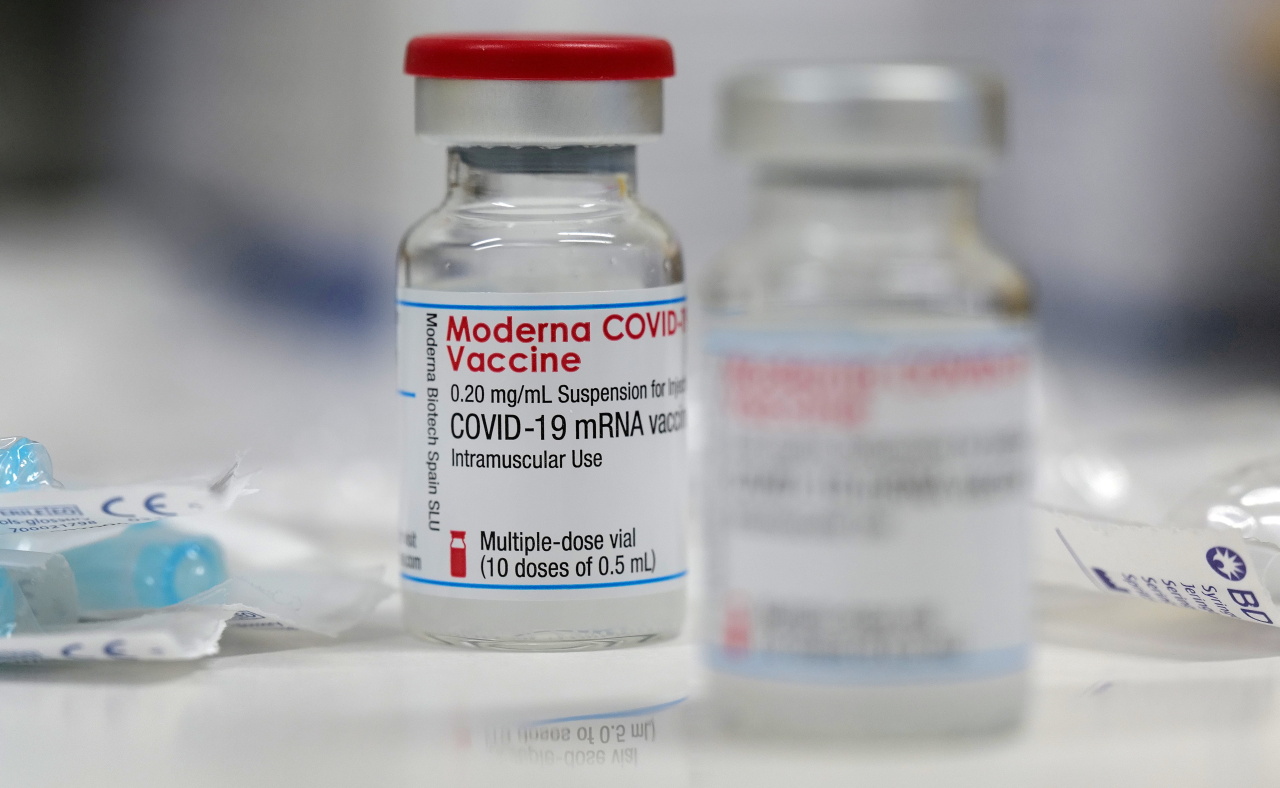More than 1.3 million Moderna doses were added to Korea’s stockpile of COVID-19 vaccines on Tuesday, raising calls for switching back to a shorter dosing interval.
Due to supply shortages in the summer, Korea extended the administration period between two doses of vaccines from Pfizer and Moderna to six weeks apart from August. The recommended gap is three weeks for Pfizer, and four weeks for Moderna.
Since then, vaccination clinics across Korea have reported having administered Pfizer or Moderna shots beyond the dates allowed for refrigerated storage. More than 430 people have received vaccines past their refrigerated storage deadlines, statistics released Monday showed.
The lengthened dosing interval is complicating vaccine handling and storage, creating a leeway for more errors, according to some experts and vaccinators.
“Thawed mRNA vaccines can be kept refrigerated for 30 to 31 days, after which point they are no longer usable,” said Dr. Kim Woo-joo, infectious disease professor at Korea University. “Before August the vaccines were mandatorily exhausted within 21, 28 days, per the dosing schedule, preventing them from being administered their shelf life.”
Pfizer vaccines, for instance, are defrosted at public health centers before they are distributed to clinics, which means that vaccinators need to check two expiry deadlines -- the vaccine’s discard date, which comes marked on each vial, as well as its refrigerator storage time.
Medical institutions offering COVID-19 vaccines must go through muncipal health offices to exchange the vaccines nearing expiry for new ones, when they cannot be used in time, according to Ahn Yeo-hyun, the director of Busan’s Sasang district public health center.
Ahn’s center is communicating with some 60 clinics in the district real-time through a group chat on messenger app, to redistribute vaccines so that as many can be put to arms before they expire. But then with some vaccines, the lack of supplies precluded such arrangements.
“With Pfizer, we’ve got extra supplies, both refrigerated and thawed. So they can be easily traded. But with other vaccines, that can be hard to arrange. We don’t have any Moderna, for example.”
Kim Ki-nam, a senior official at the government COVID-19 vaccination committee, said Tuesday that investigations were underway for the potential impact of vaccines with beyond-use dates may on side effects and effectiveness.
Top officials in the government say reverting to the standard dosing interval would depend on vaccine supply.
Yeo Jun-sung, policy adviser to the Minister of Health and Welfare, wrote on Facebook Monday that shortening the dosing interval “could be reviewed after delivery schedule for October is settled.”
In a televised briefing Tuesday, Health Ministry spokesperson Son Young-rae said next month’s supplies from Pfizer and Moderna are still “under negotiation.”
Korea conducted 165,911 tests on Monday to find 1,597 positive cases, bringing the cumulative tally to 263,374.
In the latest 24-hour period, a record number of 1,374,038 doses of COVID-19 vaccines were administered, marking a huge jump from the one-day average of 321,407 doses seen the previous week.
By Kim Arin (
arin@heraldcorp.com)








